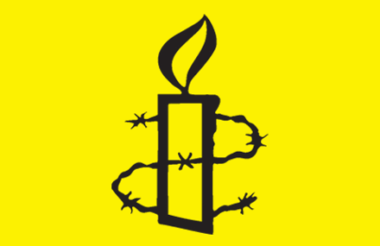Kate Allen, who has been chief executive of Amnesty International UK for more than 20 years, has left the role four months early, and Unicef UK's former boss been made interim CEO.
Allen announced in March that she would leave in September this year after Amnesty apologised over allegations of racism and discrimination.
Managers at Amnesty’s international secretariat, which is based in London, pledged to reform its internal culture after an independent report, concluded last October, found that some staff had used racist language and diminished concerns raised by ethnic minority colleagues.
The charity’s leaders told staff at the time that the report was “sobering” and promised to “address white privilege wherever it exists”.
At the same time, former staff at Amnesty International UK, which has a separate employment structure, said that it “knowingly upheld racism” in some of its practices.
At the time, Allen said she was “deeply sorry to hear the accounts of racism from our former colleagues”. This week's announcement makes no reference to the earlier reports.
Sacha Deshmukh appointed as new interim chief executive
Amnesty International UK has now appointed Sacha Deshmukh as its new interim chief executive, replacing Allen.
He will lead the charity until at least January 2022 while the organisation recruits a permanent chief executive.
Deshmukh was previously executive director of Unicef UK, but resigned, having made allegations of bullying behaviour against the charity’s then-chair, Douglas Alexander. An independent inquiry rejected the claims.
Allen said she believes “the organisation we both love is in very safe hands” adding she had planned to retire last year “but stayed on to help maintain stability during the pandemic”.
“Now is the time to move on,” she said.
Deshmukh said: “I am honoured to take up this role. I’ve been an avid supporter of Amnesty for decades.
“My first priority will be to put the building blocks in place to deliver Amnesty’s new eight-year strategy, which will tackle the root causes of human rights abuses. I want to create an inclusive and rights-respecting culture which allows the brilliant people who work and volunteer for Amnesty to thrive.
“On 28 May we celebrate our 60th anniversary, but with issues ranging from the crisis in Israel and the Occupied Palestinian Territories, ongoing repression in Myanmar and the clampdown on dissent in Hong Kong, the need for Amnesty has rarely been greater.
“To be able to play a role in the Amnesty movement at such a vital time for human rights - both here and in so many countries around the world - is a privilege.”
Related articles












